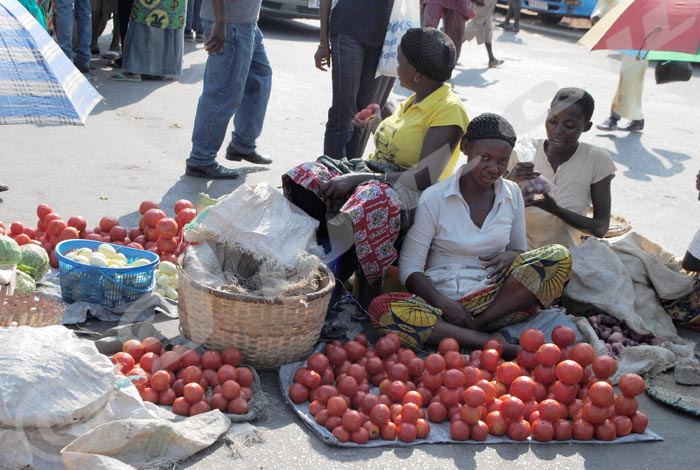Burundi has prohibited basic food exportation. Small traders and farmers lose their only means of existence.

A woman selling tomatoes
Burundi government has declared a ban on the exportation of basic foodstuffs. In a statement issued on Friday 29 July, the government spokesman Philippe Nzobonariba justified the prohibition by an anticipation of an abnormally long dry season that might cause famine. He explained that “because meteorologists tell us the rain season might delay and thus cause famine, the government of Burundi has decided to forbid the export of basic food products. The government instructs all the competent authorities in different provinces of Burundi to take all necessary measures so that no food will cross boarders”.
However, Joseph Butore, the second vice president gave a different reason for the prohibition. According to him, the ban was intended as a punishment to neighbouring Rwanda. During community development works on Saturday 30 July, at Rugombo market in western province of Cibitoke, He said “we can’t give the fruit of our labour to Rwanda because they want to fight us”.
Small traders and farmers who relied on the trade between Rwanda and Burundi are the first to suffer from the drawbacks of the ban. That prohibition causes them to lose the only means to earn their daily living. “We can no more feed our children”, says Diane Zabibu, a mother of four and a small trader of tomatoes and aubergines at Rugombo market. She complains that she and her colleagues no longer have a market for their goods. Their tomatoes are rotting since they don’t have any means of keeping them safely.
The problem is shared by farmers as well. One farmer and father of two children says: “we are the losers. We cannot harvest our tomatoes and aubergines because there is no market. I don’t see how we will earn our living when farming is no more profitable”. Some of the traders who use money they borrow fear to get in trouble when they are no longer able to pay back their loans. Others fear that they might lose their shelters when they can no more pay the rents.
The instruction by the government to sell their products to other provinces of the country means spending more and gaining less for traders and farmers. “We cannot transport our products to Bujumbura because the market is saturated”, complains the farmer. Those farmers and traders demand the government to allow them to continue their trade with Rwanda, their main market.
Burundi and Rwanda had enjoyed good relations in all aspects. Hostilities, that have now affected trade, broke out last year when Burundi entered a political crisis. Trade between the two countries was mostly based on foodstuffs such as tomatoes, potatoes, palm oil and the like. Some of those products cannot be kept for later. Tomatoes and other vegetables that cannot be sold now will rot. Will rotten tomatoes help us fight against famine?



















 IWACU Open Data
IWACU Open Data

